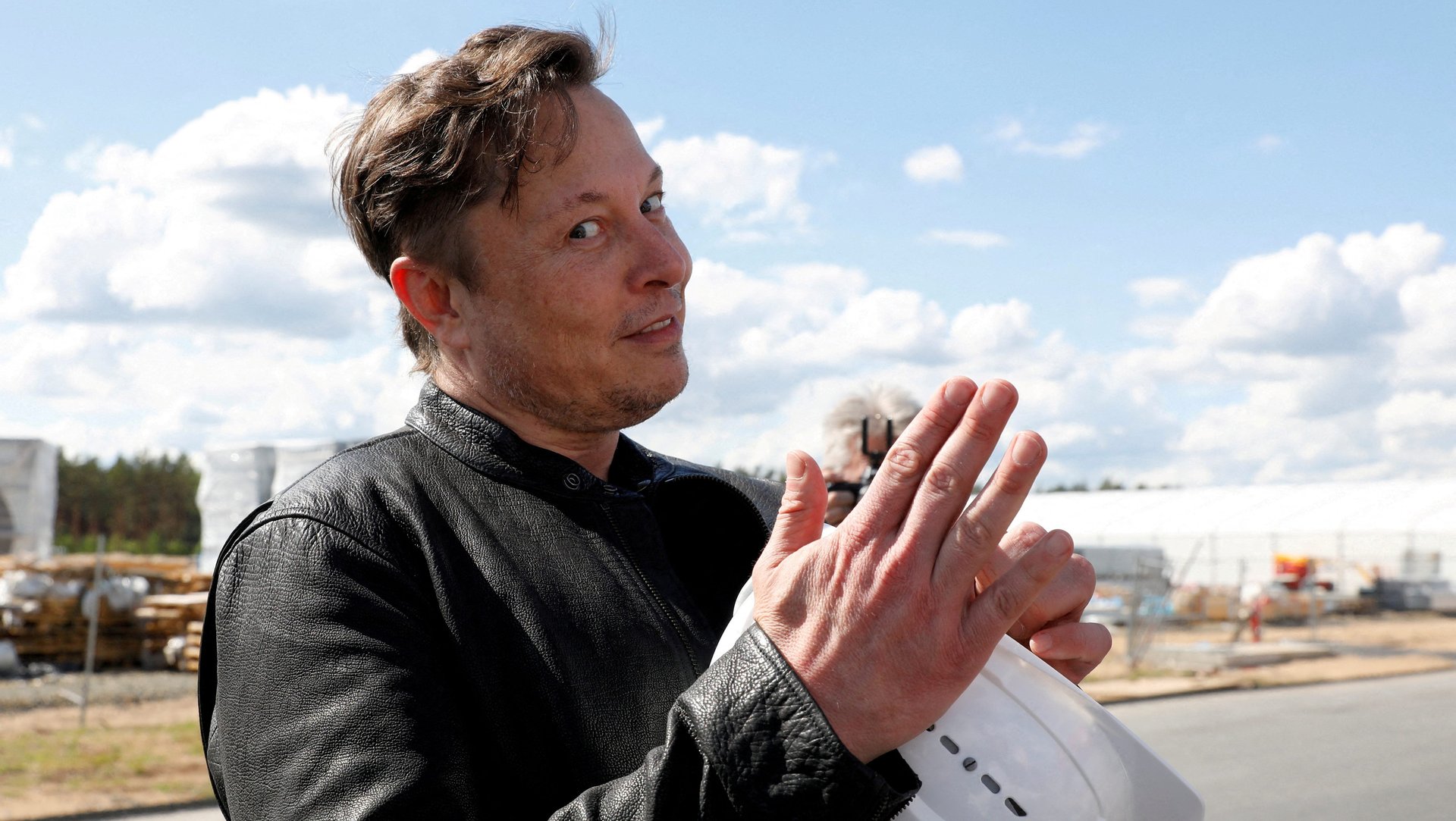Twitter’s fledgling Africa project is now in Elon Musk’s hands
A little over a year ago, Twitter started setting up its first Africa office in Ghana, a decision the company’s founder and then CEO, Jack Dorsey, made. Elon Musk, the world’s richest man, will now determine how that project evolves.


A little over a year ago, Twitter started setting up its first Africa office in Ghana, a decision the company’s founder and then CEO, Jack Dorsey, made. Elon Musk, the world’s richest man, will now determine how that project evolves.
Musk’s $44 billion acquisition gives him total control over how Twitter shapes public discourse in the US, where most of the company’s 217 million daily users tweet from. But in Africa, Twitter has helped to start and amplify social movements, from the #BringBackOurGirls campaign to rescue abducted female students, to the #ShutItAllDownNamibia demonstration against sexual harassment and #EndSARS to protest against police brutality in Nigeria.
As in other regions, Twitter has far fewer users than Facebook in Africa. In Egypt for example, Facebook has 52 million users, ten times Twitter’s user base there.
Still, Musk’s new company is part of an internet-enabled workaround over government restrictions on newspaper, radio, and TV press freedoms to establish trusted media in Africa, making the South Africa-born billionaire an interested party in the continent’s experiment with democracy.
Twitter set up in Ghana for “free speech”
Musk wants to make Twitter algorithms open source, defeat bots that spam user timelines, and authenticate all humans. But his overall goal is to advance free speech, which aligns with Twitter’s priority in choosing Ghana as its Africa location—a move that was seen by some as a snub of Nigeria.
“As a champion for democracy, Ghana is a supporter of free speech, online freedom, and the Open Internet, of which Twitter is also an advocate,” Twitter said in its Apr. 2021 announcement.
That move came against the backdrop of the Oct. 2020 EndSARS protests in Nigeria. The protests were driven by young Twitter users and supported by Dorsey, who had visited the country the year before. The Nigerian government criticized the company for promoting disorderly conduct.
Two months after setting up in Ghana, Twitter was banned in Nigeria after the company temporarily restricted president Muhammadu Buhari’s account for a tweet that violated its terms of service.
Musk inherits Africa’s content moderation issues
After seven months, Twitter became freely available in Nigeria again when the ban was lifted this year. It reportedly agreed to set up an office, pay taxes and cooperate with the country’s national security considerations on the content it allows.
Musk’s free speech stance is under scrutiny for not taking content moderation concerns seriously. His view is to allow all kinds of tweets except those that are criminal. That stance will be tested in Africa where, despite its benefits, Twitter has also been used in harmful and questionable ways.
Last November, Twitter disabled its trends tab in Ethiopia in response to a perception that the platform was amplifying violence in the country. An analysis by Mozilla Foundation fellows have accused the company of failing to act on a disinformation-for-hire industry in Kenya where influencers are paid to target smears at civil society organizations and journalists.
How much attention Musk pays to Twitter’s presence in Africa remains to be seen, though he is known to be an “extreme” micromanager at Tesla and has projects on the continent. SpaceX, his rocket company, launched three nanosatellites produced in South Africa into orbit in January. The company’s Starlink service plans to improve internet access in Africa by launching over 1,000 satellites in the coming years.